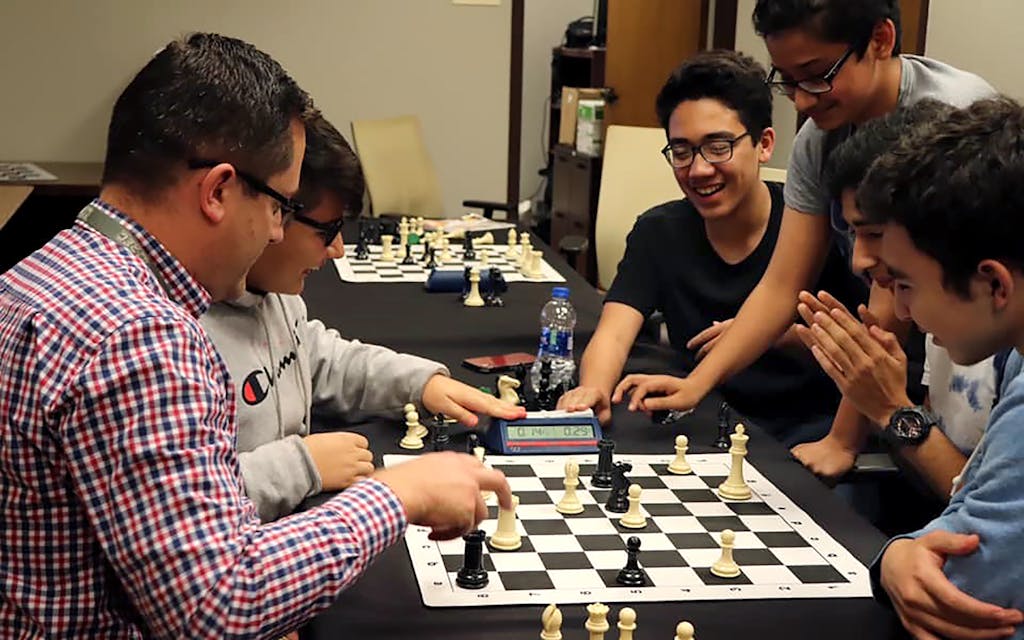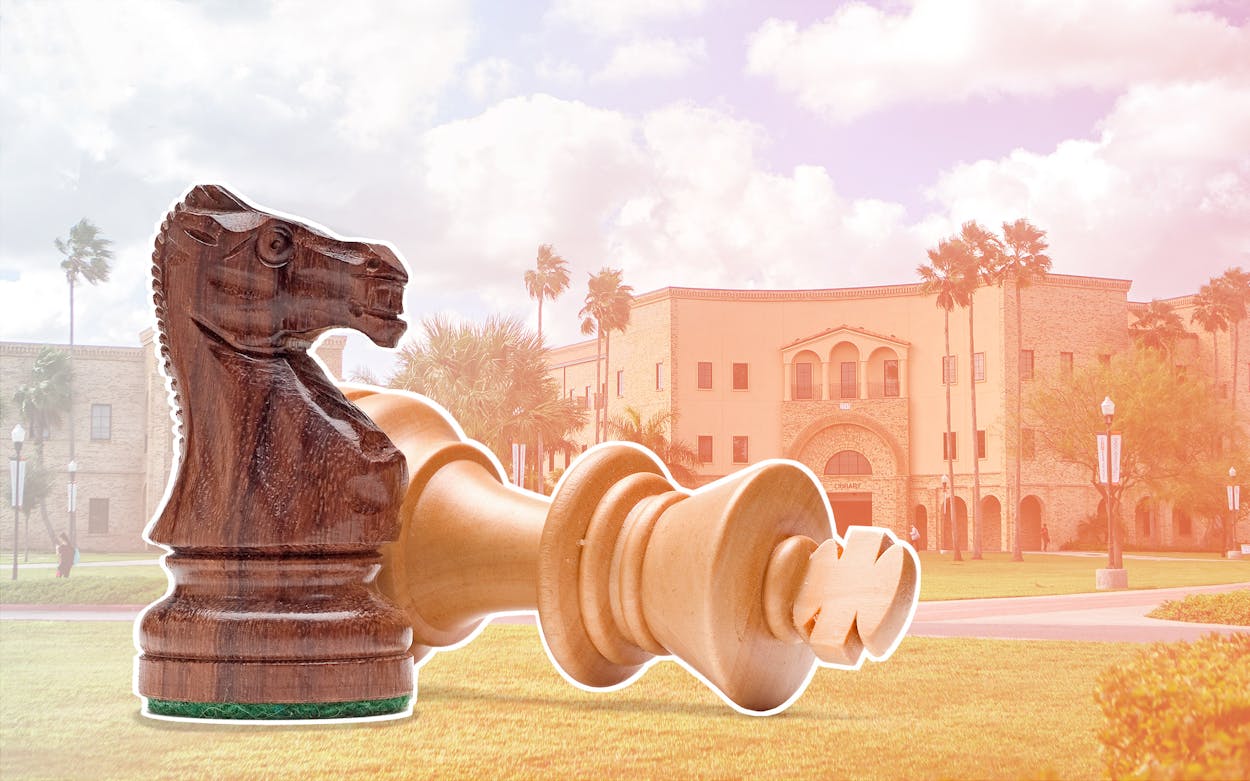WHO: The stunningly talented members of the University of Texas Rio Grande Valley chess team.
WHAT: The team just snagged its third consecutive national title.
WHY IT’S SO GREAT: When you think of South Texas, you probably don’t think of chess. But you absolutely should. Brownsville, the working-class, primarily Hispanic city just across the Rio Grande from Matamoros, has quietly become an international chess powerhouse. Over the last decade, the University of Texas Rio Grande Valley’s Vaqueros chess team (motto: “Dominate the board”) has risen through the ranks, establishing itself as one of the best collegiate teams in the nation—and, arguably, the world. On Sunday, the Vaqueros bested Webster University 3.5–0.5 to take home their third consecutive national title at the President’s Cup, aka the Final Four of college chess.
“It was not an easy win,” says Bartek Macieja, who has coached the team since 2012. The Vaqueros initially lagged behind the Gorloks of Webster University; as five-time champion, the Missouri team was the favorite. “After five rounds, we were still in the second position . . . We knew we had to completely crush them. And that’s what we did.”
Macieja, a chess grandmaster who moved to Texas from his native Warsaw, Poland, after UTRGV recruited him for the coaching job, is himself a key factor in the team’s success. He was named European champion in 2002—y’know, no big deal—and has twice won the Polish national title. When UTRGV came calling, he was looking for a new challenge. “I still compete with the Polish national team, and I knew I could do that for many more years, or I could try this,” Macieja says. He knew nothing about South Texas before he moved for the job, but today he’s a loyal Texan: “I am very proud that Brownsville has become so famous for chess, not only in Texas or even the United States, but the entire world.”
This week’s win isn’t the only recent victory for the Vaqueros. In February, the UTRGV students beat 125 other teams to win the Kasparov Chess Foundation University Cup, which came with a prize they all geeked out about: a private training session with Garry Kasparov, one of the all-time greats.
The team’s sixteen members hail from ten countries: Armenia, Azerbaijan, France, Georgia, Kazakhstan, Poland, Russia, Ukraine, and Venezuela—plus two Texans. Many of the players receive full scholarships, which are funded in part by the students of UTRGV; a portion of the student activity fee goes to chess. “The students have voted to say that our team is one they want to support,” says Douglas Stoves, an associate dean who oversees the chess program. He says the team enjoys strong support from the campus community, as well as from Brownsville at large—not unlike the way another town might cheer for a football or basketball squad. “At some point, it was decided that [chess] was going to be more than just a nice thing to do,” he says, “and it became a regional success story.”

As Texas Monthly’s Katy Vine reported in 2007, Brownsville’s path to chess domination can be traced as far back as 1989. That’s when a teacher named Jose Juan “J. J.” Guajardo started a chess program at Emaline B. Russell Elementary. The school clinched seven consecutive state titles from 1993 to 1999, and the local chess scene ballooned from there. Another catalyzing event came in 2003, when a former high-school chess star named Clemente Rendon moved home to Brownsville and helped start the college team. Now, according to Macieja, almost every K-12 public school in Brownsville has some kind of chess program.
“Not long ago, there was a big scholastic tournament in London, and they were proud that they had over one hundred [players],” Macieja says. “Well, here in Brownsville, before the pandemic, we had six hundred kids competing every second or third weekend!” The college team regularly holds workshops in the local schools, so the kindergarten-through-campus pipeline has come full circle.
Stoves also credits Juliet Garcia, former UT-Brownsville president, for championing chess at the college level: “She saw the potential, and she understood that because of the socioeconomic reality of South Texas, this was something that could be accessible.” As extracurricular pursuits go, chess is affordable: you need only a board and someone to play with. These days, a board is often swapped for a laptop—since COVID struck, the Vaqueros have trained and played all their matches online. You can watch their most recent win on Twitch.
Macieja says he couldn’t be prouder of his team. “It’s really an amazing story, how we did it by defeating our biggest rival. Everybody was celebrating.” As the team is still quarantining at home, the victory party was a little muted this year. The players couldn’t gather in person, but the group chat on WhatsApp was “going like crazy,” Macieja laughs.
UTRGV, by the way, wasn’t the only team from the Lone Star State in the Final Four: Texas Tech came in fourth. UT Dallas is also extremely good, having finished fourth in the Kasparov Cup. Next time you think Texas, you better think chess.
- More About:
- Best Thing in Texas
- Rio Grande Valley








